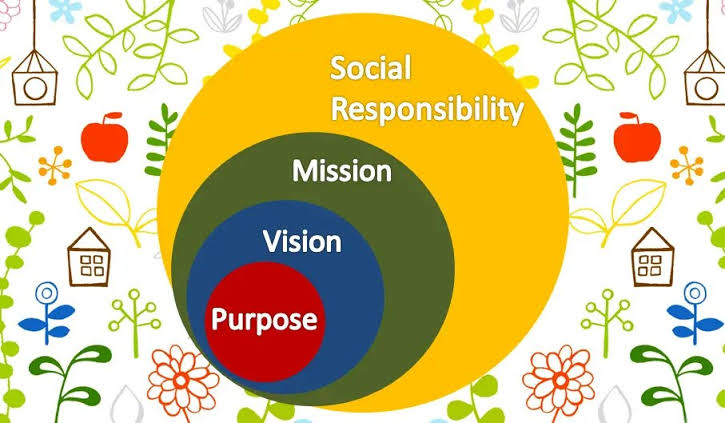In the business landscape today there is growing pressure on companies to align their Unique Value Proposition (UVP) with their social responsibility initiatives. A UVP serves to distinguish a company from its competitors by highlighting the benefits and value it offers to customers. On the hand social responsibility encompasses a companys dedication to practices, community engagement and environmental conservation. Harmonizing these two elements is essential for establishing a brand that resonates with consumers and makes a positive impact on society. This synergy not enhances a companys reputation. Also builds trust and loyalty among its stakeholders.
A Unique Value Proposition (UVP) is a concise statement that outlines how a companys offerings address customer issues or enhance their circumstances. It explains the factors that set the company apart in a market and the reasons customers should prefer it over rivals. An effective UVP emphasizes the benefits and distinctive features offered by the company that are not easily imitated by competitors in the field.
Components of a UVP
Distinctive Edge: The Unique Selling Proposition (USP) should clearly convey how the company stands out from the competition. This uniqueness can stem from product features, pricing, quality, customer support or other aspects that resonate with the target market.
Value for Customers: It should outline the advantages that customers will receive by choosing the companys products. These benefits should address customers pain points or desires making the USP relevant and persuasive.
Audience Focus: A USP should be customized to suit the preferences and needs of the target audience. Knowing the demographics and psychographics of the audience aids in crafting a message that connects with them.
Notable examples of USPs include Apples focus on innovation and design setting it apart in the tech industry or Patagonias dedication to environmental sustainability resonating with its environmentally conscious customers values.
Defining Social Responsibility
Corporate social responsibility pertains to a business dedication, to operating in an ethical way that takes into account the effects of its actions on both society and the environment. This includes a range of activities such as donating to causes, upholding labor standards promoting eco friendly practices and actively participating in community initiatives.
Aspects of Social Responsibility
Environmental Responsibility: This means reducing the impact on the environment by cutting down on waste, saving energy and using eco friendly materials.
Fair Treatment of Workers: It's important to provide pay, ensure safe working conditions and uphold workers rights as part of ethical labor practices.
Community Involvement: Companies can give back to communities by volunteering, backing local projects and collaborating with organizations.
Openness and Responsibility: Being open about how a business operates and taking responsibility for choices is crucial, in gaining the trust of stakeholders.
Aligning UVP with Social Responsibility
Aligning a companys unique value proposition (UVP) with its commitment to responsibility involves weaving in its values and mission into both its business operations and marketing message. This alignment ensures that the companys dedication to responsibility is evident in its UVP fostering a genuine and cohesive brand image.
Here are the steps to align UVP with responsibility:
1. Identify Values: Start by outlining the values that guide the companys approach, to social responsibility. These values should resonate with the companys mission and find expression in its UVP. For example if a company prioritizes sustainability its UVP should showcase its dedication, to environmentally practices.
2. Incorporate Values into UVP: Adjust the UVP to incorporate aspects of responsibility that resonate with the target audience. This might involve highlighting sourcing, community engagement or eco friendly initiatives. The UVP should effectively convey how the companys values are integrated into its offerings.
Maintain Communication: Make sure the message communicated through the Unique Value Proposition (UVP) aligns with the companys commitment to responsibility. Consistent messaging contributes to establishing a reliable brand image. Its crucial for the companys actions to reflect its stated UVP to prevent accusations of "greenwashing" or insincerity.
Assess Impact: Periodically evaluate how the companys efforts in responsibility influence its UVP and overall brand perception. This includes gauging customer opinions, gathering feedback and assessing the impact of initiatives. Necessary adjustments should be made to improve alignment and address any inconsistencies.
Benefits of Alignment
Aligning a Unique Value Proposition (UVP) with responsibility brings companies various advantages:
Improved Brand Image: Companies that effectively integrate their UVP with practices tend to be perceived positively by consumers. A strong reputation for ethical conduct and community engagement can set a company apart from its rivals.
Increased Customer Loyalty: Consumers are increasingly basing their purchasing decisions on a companys values and commitment to responsibility. By aligning the UVP with these principles companies can cultivate loyalty and advocacy among their customers.
Attracting Talent: Organizations that showcase a dedication to responsibility are more likely to draw in and retain top talent. Employees are often driven by the desire to work for companies that reflect their values.
Long Term Success: Companies that weave responsibility into their UVP are better positioned, for success. This alignment contributes to the establishment of sustainable business practices and the nurturing of relationships, with stakeholders.
Challenges and Considerations
While aligning a Unique Value Proposition (UVP) with social responsibility has its benefits there are also challenges to consider. Companies may struggle to accurately portray their efforts in social responsibility or ensure that their practices truly reflect their UVP. It's crucial to approach this alignment with genuineness and openness to steer clear of potential issues.
In summary aligning a UVP with responsibility is vital for establishing a brand image and sustainability. By incorporating values and mission into both business operations and the UVP companies can develop a brand identity that resonates with consumers and positively impacts society. This alignment not boosts brand reputation and customer loyalty; also contributes to long term business success. As businesses evolve maintaining this alignment will be key to navigating the complexities of modern consumer expectations and social responsibility.
